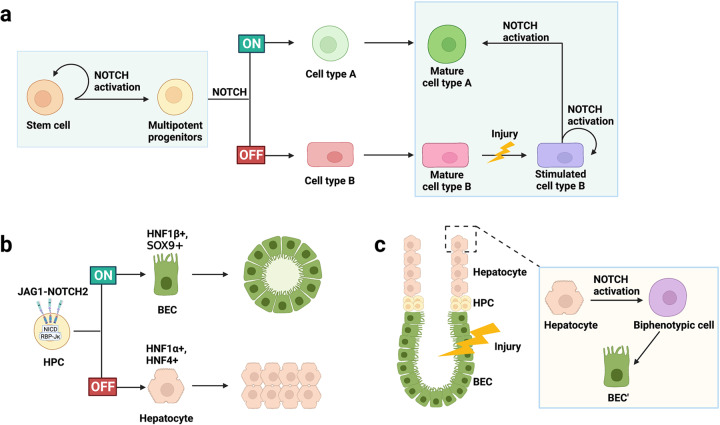Fig. 3.
The role of NOTCH signaling in body development and damage repair. NOTCH signaling is involved in regulating the differentiation and function of stem cells, affecting organ production and damage repair. a NOTCH signaling promotes the self-renewal of stem cells, induces multipotent progenitors for lineage selection, and generates different terminal cells; when the organ is damaged, cell type A is damaged and destroyed, and the stimulated cell type B rapidly upregulates the expression of NOTCH signaling to promote their own proliferation, and is partially redifferentiated into cell type A. b Highly activated NOTCH induces the expression of bile duct cell-enriched transcription factors and promotes the differentiation of multipotent hepatocyte progenitors into bile duct epithelial cells. c In liver injury, BEC are damaged and destroyed. NOTCH signaling is highly expressed in hepatocytes, which are further transformed into biphenotypic cells, which manifests the biliary tract morphology, and finally generate new BEC (BEC’) to form small tubular structures. HPC, hematopoietic progenitor cell; BEC, bile duct epithelial cell; SOX9, SRY-related high-mobility group box 9; HNF, hepatocyte nuclear factor

